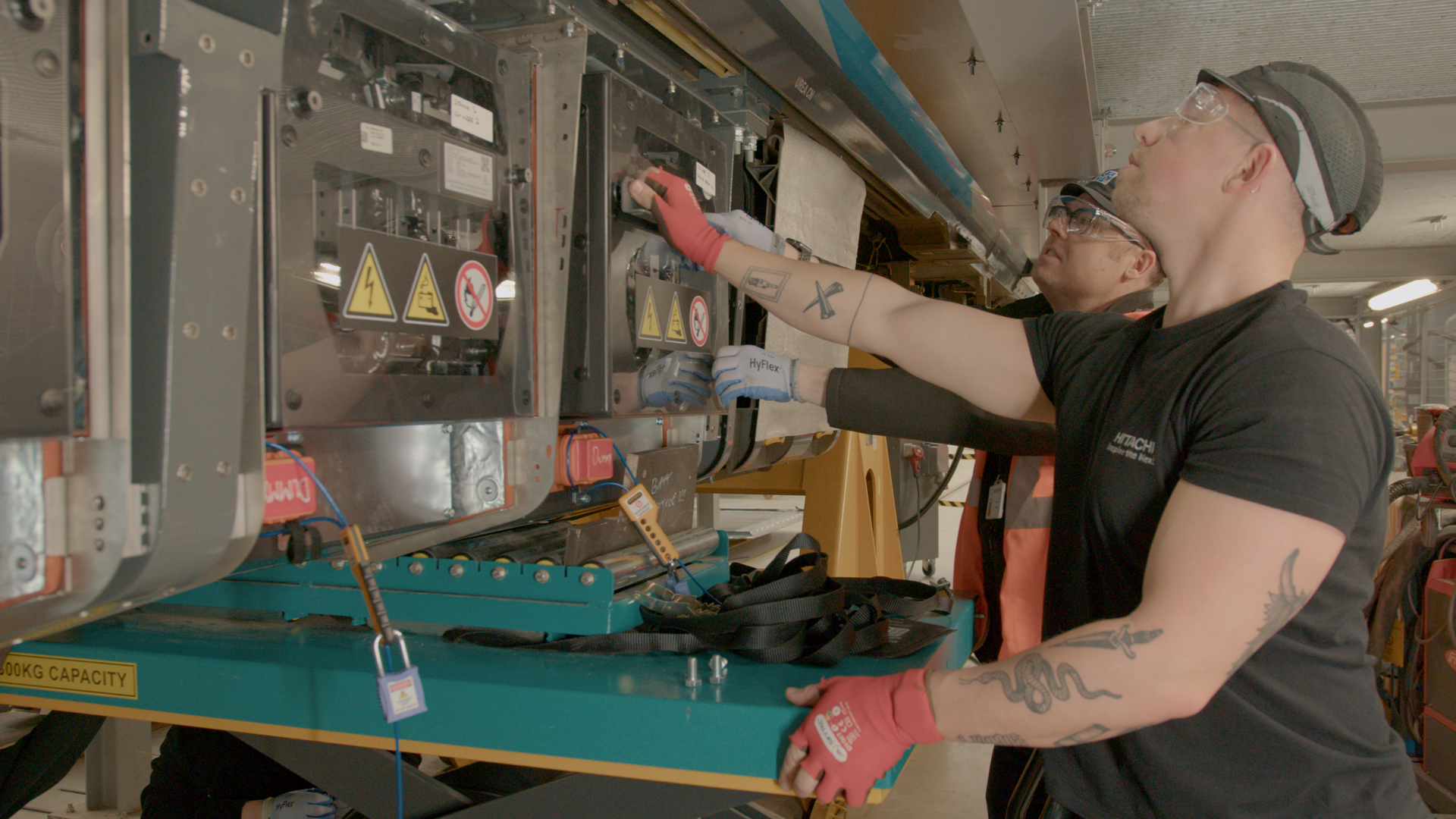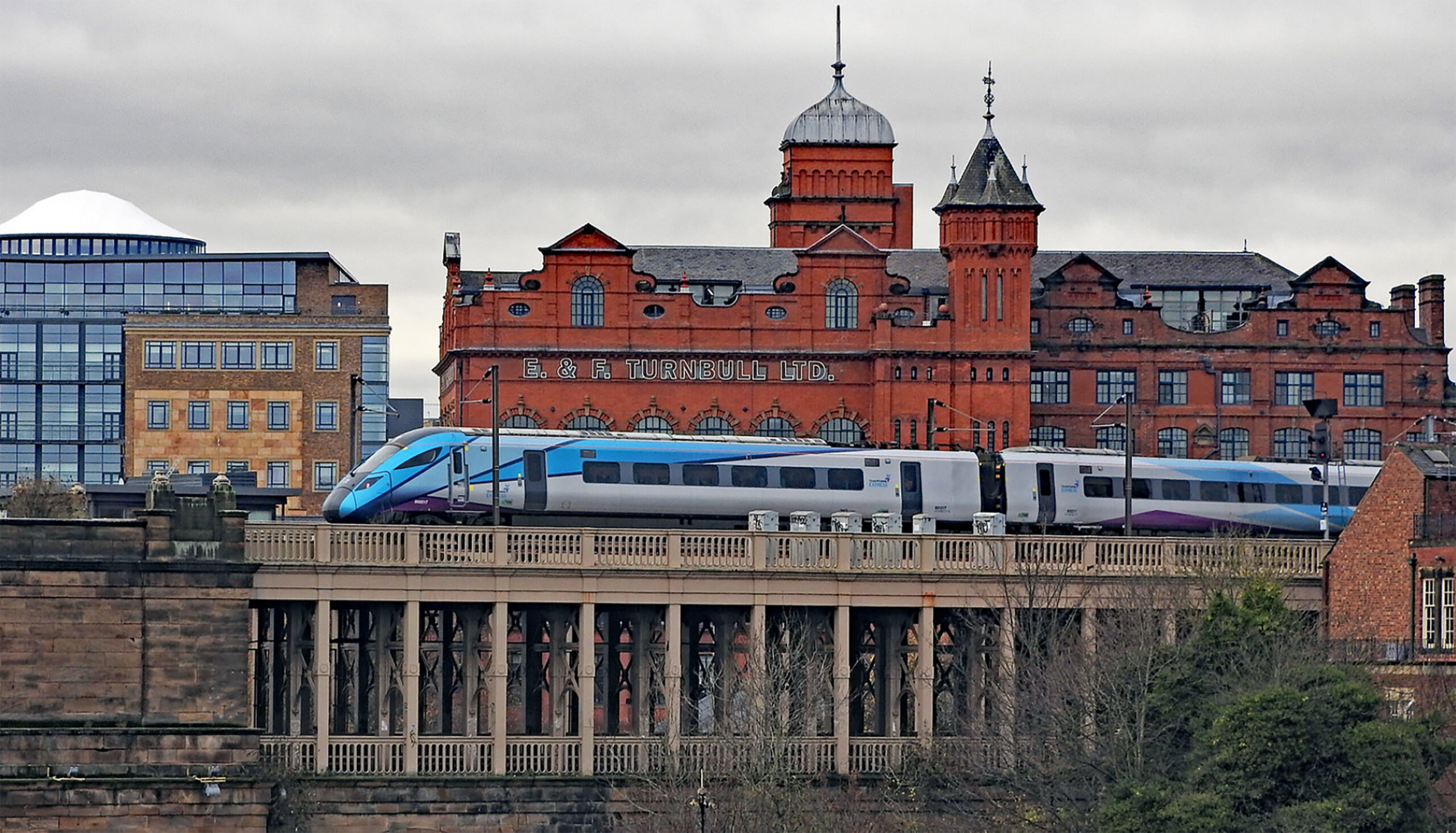In collaboration with Angel Trains and Turntide Technologies, Hitachi Rail has retrofitted battery technology on a TransPennine Express train for trials in the UK.
This marks the nation’s first trial to replace a diesel engine with a battery on an intercity train.
The Class 802 TransPennine Express train
© Chris Davis Photography
The battery was built by Hitachi Rail and Turntide Technologies using the North East supply chain. Each battery unit is expected to reduce emissions and fuel costs by as much as 30 percent.
The battery generates a peak power of more than 700kw and can deliver the same levels of high-speed acceleration and performance as a diesel enginee, while also not being heavier than the engine it replaces.
“Hitachi has invested more than £15 million in research and development to deliver a ‘UK first’ in battery train technology. Collaborating closely with our partners, Angel Trains and TransPennine Express, we are committed to showcasing how the rail industry can significantly lower costs and emissions. This is an important next step towards a more energy efficient and greener railway.”
The battery unit has been successfully retrofitted onto a five-carriage intercity Class 802 TransPennine Express ‘Nova 1’ train.
The retroffitted train will complete trials to test how intercity trains can enter and depart non-electrified stations in zero-emission battery mode to improve air quality and reduce noise pollution.

The battery installation Newton Aycliffe
© Hitachi Rail
“This project represents a significant investment in one of our newest fleets. It will both support and draw upon the skilled jobs and expertise at Hitachi’s Newton Aycliffe facility and enable us to demonstrate how battery retrofit technology can help us decarbonise our railways.”
The results of this trial will inform the business case for deploying fully battery-electric intercity trains, which will be capable of running up to 100 kilometres in battery mode. This range would enable the battery technology to cover the non-electrified sections of intercity routes in the coming years.
The trial also hopes to demonstrate how battery technology can cut infrastructure costs by reducing the need for overhead wires in tunnel sections and over complex junctions.
“We’re really pleased to be a part of this innovative and critically important trial of battery technology.
“We take our environmental responsibilities seriously and are constantly looking at ways of making rail travel even more sustainable and efficient. This trial will allow us to assess the exciting new technology on our Nova 1 train; we’re looking forward to seeing the results and how well the batteries work on our network.”
The battery for the train was developed through a Japan-UK engineering alliance. Hitachi Rail invested more than 15 million GBP to co-develop the battery system with Turntide Technologies.
After being assembled in Sunderland, UK, the battery pack was shipped to Japan to undergo robust testing by Hitachi’s battery train experts.
“We are incredibly proud to be part of this ground-breaking project, co-developing one of the world’s most powerful passenger train batteries with our esteemed partners at Hitachi Rail.
“The successful development and production of this high-performance battery at our Sunderland facility further highlights the key role we play in the UK’s industrial landscape. We believe this clean technology will revolutionise the rail industry, not only in the UK but around the globe.”

